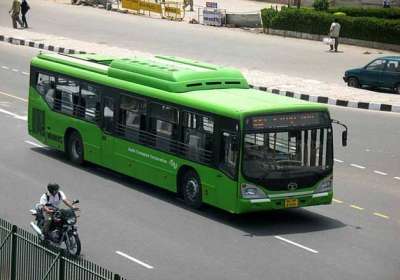Nitika Francis

Ragamalika Karthikeyan(centre), C Moulee(fourth from left) and the rest of the team behind Inqlusive Newsrooms’ LGBT journalist convention held in Bengaluru. Photo: Sreerag T K
“Why can’t queer people have ambition? Why can’t we be editors-in-chief? Why can’t we be bureau heads or chief reporters?’’ asks Ragamalika Karthikeyan, an editor at The News Minute (TNM), who also leads Inqlusive Newsrooms initiative, a collaborative project between TNM and Queer Chennai Chronicles.
Her question is a pointer to the current media scenario in the country where an inclusive newsroom is still a rarity. In a society whose perception of queer individuals has been shaped by negative portrayals in media and news, more queer journalists in the newsroom are a necessity.
The constant misrepresentation and invisibilisation of the LGBTQIA+ community have led to tangible ill effects on its members. Positive and more sensitively-crafted coverage has been on the rise with the legal fight for marriage equality being extensively covered by mainstream publications, more and more films featuring queer stories (even though a good number of them project sterotypes), and an increase in queer social media spaces such as Gaysi, Queerabad, and Queerhythm.
However, negatively-biassed reportage has had an undeniable impact too. According to an article by DNA, an instance of such reporting is the “witch hunt” of homosexual men in Amravati, Maharashtra, conducted in 2013 by a widely-read daily newspaper. A front-page report of theirs claimed that the young generation was “in danger” and outed spots that were a recluse for gay men in the city. The piece portrayed them to be “addicts” of “unnatural sexual desires.” Police raided these outed spots, and newspapers were flooded with calls asking how these gay men looked.
Diversity in a newsroom does not automatically lead to a better standard of journalistic ethics, according to SL*, 22, a freelance journalist from Bengaluru, who specialises in queer stories. “There are certain expectations we place on queer people to be politically conscious and active,” they said.
“That being said, there are definitely some nuances that certain people may not even be able to acknowledge, see, or register until it’s pointed out to them. This is where the lived experience for queer folks comes into play,” they added.
Cal*, 36, a queer videographer and community reporter from Bengaluru, acknowledged these missed nuances. “The general media is different from ours. We barely exist in their media,” he said. “They barely get our pronouns right. If they don’t know what to call us, I can’t expect them to give us the platform we deserve,” he said.
Sharing several queer journalists’ experiences with pitching queer stories, SL* recounted how they had to hide their identity and how organisations are hesitant about certain kinds of stories.
“By virtue of telling stories about human experiences, we have to have room for nuance, and diversity offers that space for nuance. It offers space for layers and complexity. Otherwise what we risk is simplification, which is a very dangerous thing,” they said.
An initiative for responsible reporting
The Inqlusive Newsrooms initiative took shape from the minds of Ragamalika and C Moulee, the co-founder of Queer Chennai Chronicles, an Indian LGBT literary organisation.
They had worked together on producing LGBTQIA+ media reference guides in English and Tamil. Through the initiative, they plan to create media guides and glossaries in six languages. These aim to help journalists and newsrooms understand how to report on people from the LGBTQIA+ community responsibly and accurately.
The initiative, supported by Google News Initiative, has also announced a fellowship for journalists who wish to cover LGBTQIA+ stories. From February 23 to February 25, they held the “conf.inq” LGBT journalist convention, in Bengaluru. The convention was held with the two-pronged intention of knowledge-building and growing a supportive community of queer journalists.
“We held the convention so that people could learn from each other’s experiences,” said Ragamalika, “so that they could find solidarity in the community, and gain skills as well.”

Dhrubo Jyothi, Senior Editor, Hindustan Times, speaking at the “conf.inq” convention in Bengaluru. Photo : Sreerag T K
Journalism as a profession
One of the speakers at the event, Dhrubo Jyothi, Senior Editor at Hindustan Times, discussed a lived dilemma of theirs that many other queer journalists face: Should their identity inform their work? Will it affect how they are treated in the workplace?
Jyothi expressed their hope for a diverse and liberated enough media that provides people not just with jobs, but jobs that they dream of. But they spent their session emphasising the reality of current newsrooms, where it is easy for organisations to pigeonhole queer stories into those about celebrating at pride parades and being victims of crimes.
They asked the audience to try and improve what they can, but to keep the importance of resources in mind.“Change and storytelling are important, but so is survival. Journalism is not a mission, it’s a profession,” they said.
Ragamalika emphasised the need for queer individuals to be part of the newsrooms first to make positive changes for the community.
“More than visibility, the point is, am I present? Queer people should be able to find their footing in the industry first.’’
(* Some names have been changed upon request)
Nitika Francis (she/her) is a trainee journalist at Asian College of Journalism. She has worked with The Quint, and has a keen interest in music, culture and gender.



